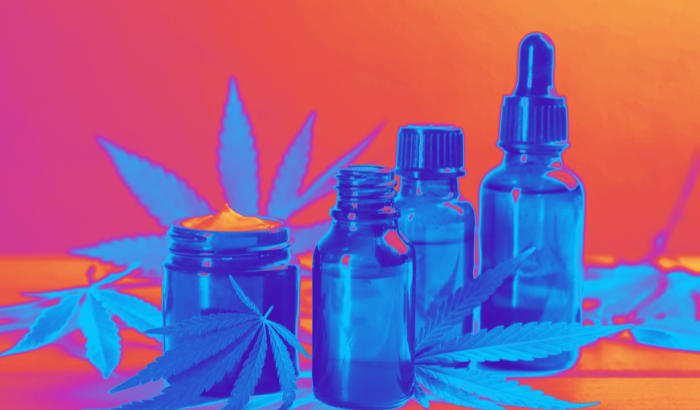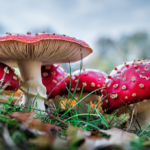
“This will effectively collapse the supply chain of THCV in Massachusetts and cause a myriad of downstream effects in regards to the availability of beneficial and effects based products here.”
(This article was updated on May 8, 2024 with comments from MDAR)
This week started off with a gut punch for Bay State Extracts, which utilizes industrial hemp to isolate minor and rare cannabinoids for bulk supply to manufacturers.
The company, which only deals with “naturally occurring non-psychotropic phytocannabinoids,” on Monday received an “order from the Massachusetts Department of Agricultural Resources commanding us to destroy any and all THC-V products and stop its transfer,” Bay State Extracts CEO John Nathan wrote on social media.
The official language: Mass ordered the business to “Cease and desist the manufacture and sale of hemp products containing THCV or any synthetic isomers of THC that are not otherwise authorized by state or federal law.”
In a response to questions about the agency’s actions, an MDAR spokesperson wrote in an email to Talking Joints Memo: “On May 6, 2024, the Massachusetts Department of Agricultural Resources (MDAR) issued a cease-and-desist order to a licensed Massachusetts Hemp Processor who was non-compliant in selling products containing the semi-synthetic cannabinoid known as THCV.”
The spokesperson noted that the “matter is under appeal, and as such MDAR cannot provide any additional comments at this time,” but provided some additional context:
THCV is a type of cannabinoid that comes from cannabis. Although THCV can be found naturally in some cannabis varieties, it is only present in trace amounts in the plant and producing it in large quantities requires the use of a semi-synthetic derivation process. This process would classify it as a semi-synthetic cannabinoid, which is not covered under the definition of hemp under state and federal law. Whether or not a cannabinoid is intoxicating does not impact the determination as to whether it is naturally or synthetically-derived.
MDAR licensees have always been prohibited from manufacturing or processing synthetically and semi-synthetically derived cannabinoids. To receive a license to grow or process hemp in Massachusetts, all applicants must agree to comply with applicable law, which includes manufacturing products that meet the legal definition of hemp under state and federal law. MDAR’s position on THCV is also consistent with many other states and the Cannabis Regulators Association (CANNRA), a non-partisan association of government agencies involved in cannabis and cannabinoid regulation.
THCV doesn’t get you stoned, and has widely reported benefits including assisting with appetite suppression and energy. According to a paper published in the Journal of Cannabis Research in 2020 on “potential therapeutic benefit for the management of obesity and diabetes,” THCV is a “cannabis-derived compound with unique properties that set it apart from the more common cannabinoids, such as Δ9-tetrahydrocannabinol (THC),” since the “main advantage of THCV over THC is the lack of psychoactive effects. … It is envisioned that the unique and diverse characteristics of THCV could be explored for further development into clinically useful medicines for the treatment of life-threatening diseases.”
The response from Bay State Extracts has been fierce. “It’s alarming,” Nathan wrote, adding that the order came despite his company “remitting a well thought out email breaking down that THCV is not only a naturally occurring cannabinoid found in hemp but also not an isomer of THC nor is it intoxicating.” “In fact,” he added, “pharmacologically, it inhibits the psychotropic properties of THC.”
Nathan is an expert on minor cannabinoids, and helped write and pass the Massachusetts Hemp Industry Survive and Thrive amendment in 2020, which opened the door for “Marijuana Establishments and Medical Marijuana Treatment Centers [to] purchase raw, unprocessed hemp, including flower, and unfinished hemp-derived extracts for use as an ingredient in marijuana products but these ingredients must be obtained from an individual or entity that is licensed with the MDAR Hemp Program.”
Today’s move by MDAR may be in response to the influx of unregulated hemp-derived products showing up on shelves at Bay State liquor and convenience stores. In a five-part series published by Talking Joints Memo detailing so much ongoing confusion and controversy around the issue, Nathan distinguished his brand from those selling seltzers from out of state and illicit edibles.
“I stay within the safe bounds of the law,” the Bay State Extracts CEO said in February. “People hear what I’m saying and say, He’s a prohibitionist, but no, I’m just radically accepting what the law is and operating within its bounds and working incrementally to change it. … Where are all the hemp-derived edibles that are exceeding the 5mg per piece law coming from? In Massachusetts, almost 100% out of state. No one’s really making delta-9 edibles here.”
THCV is currently featured in a number of popular licensed Mass cannabis products that are available at dispensaries. It’s unclear what will happen with those products, both future batches as well as what is already on shelves, but Nathan said the fallout could be devastating.
“This will effectively collapse the supply chain of THCV in Massachusetts and cause a myriad of downstream effects in regards to the availability of beneficial and effects based products here,” he wrote. “There is no logical basis for banning a cannabinoid simply because its acronym begins with THC. I have communicated this in depth to the department and will be requesting a hearing to address this.”
According to the MDAR spokesperson, “this position is specific to cannabinoids manufactured and sold as hemp-derived products and under MDAR jurisdiction. Products manufactured and sold as marijuana are under the authority of the Massachusetts Cannabis Control Commission and may be subject to different rules and standards.”
























